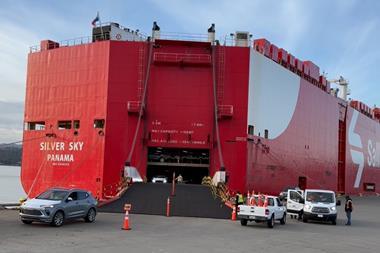 Automotive parts suppliers Schaeffler and Michelin have both announced they are scaling back their UK manufacturing operations – the former citing Brexit uncertainty as one of the reasons and the latter blaming the move on changing markets and cheap competition.
Automotive parts suppliers Schaeffler and Michelin have both announced they are scaling back their UK manufacturing operations – the former citing Brexit uncertainty as one of the reasons and the latter blaming the move on changing markets and cheap competition.
German firm Schaeffler is closing its 220-employee factory at Llanelli, in south Wales (pictured). Production of the mechanical tappets and special-purpose bearings it makes for automotive OEMs and industrial customers will be relocated to the US, China, South Korea and Germany.
The move is part of a strategy to improve efficiency by moving output closer to where its products are required, said Europe CEO, Jürgen Ziegler.
“Brexit is clearly not the single decisive factor behind our decision-making for the UK market, but the need to plan for various complex scenarios has brought forward the timing,” he added.
The decision follows a review of Schaeffler’s British business activities under a corporate excellence programme, Agenda 4 plus One, looking at the strategic and economic competitiveness and the long-term sustainability of all its locations worldwide. This included such areas as economic conditions, supply and demand, the decisions OEMs are making and the fact that only 15% of the goods Schaeffler produces in the UK remain in the country (with the majority exported to continental Europe).
The company also plans to merge its industrial products’ logistics centre in Sutton Coldfield, central England, with the automotive aftermarket base in Hereford, 123km to the south-west, to gain synergies and efficiencies.
Schaeffler has also announced the closure of its 365-employee industrial division factory in Plymouth, but is retaining its largest British factory at Sheffield, which assembles clutches for passenger cars and tractors.
The group anticipates the reorganisation will take up to two years to implement.
Greig Littlefair, MD of Schaeffler UK, said the company was “committed to having transparent and fair discussions with the employees affected by these proposals” and that it would ensure the changes created “minimal disruption” for customers.
Tony Burke, assistant general secretary of the union Unite, described the news as “yet another body blow for the UK’s automotive supply chain and the wider car industry”, however, adding: “It should leave no one in any doubt as to what is in store if the UK crashes out of the EU without a deal that secures tariff-free, frictionless trade.”
The union is currently seeking to engage with the company and Welsh government to seek alternatives to the Llanelli closure.
Michelin making tracksMeanwhile, in Scotland, a task force of politicians, business leaders, trade union representatives and others are seeking to avoid the closure of Michelin’s tyre factory in Dundee. The plant employs 845 workers.
Michelin has agreed to meet Scotland’s economy secretary, Derek Mackay, at the end of the month to listen to the task force’s proposals. One of the ideas being considered is that the plant might carry out research and development for Michelin.
The French company has blamed a shift in demand away from the premium tyres of 16 inches and under that the Dundee site produces, as well as competition from “low-cost, entry-level” products from Asia, for its plans to close the factory by mid-2020.
Michelin said it would offer support to all affected employees and, working through its Michelin Development operation, seek to create 845 new jobs by promoting economic development in Dundee.



































